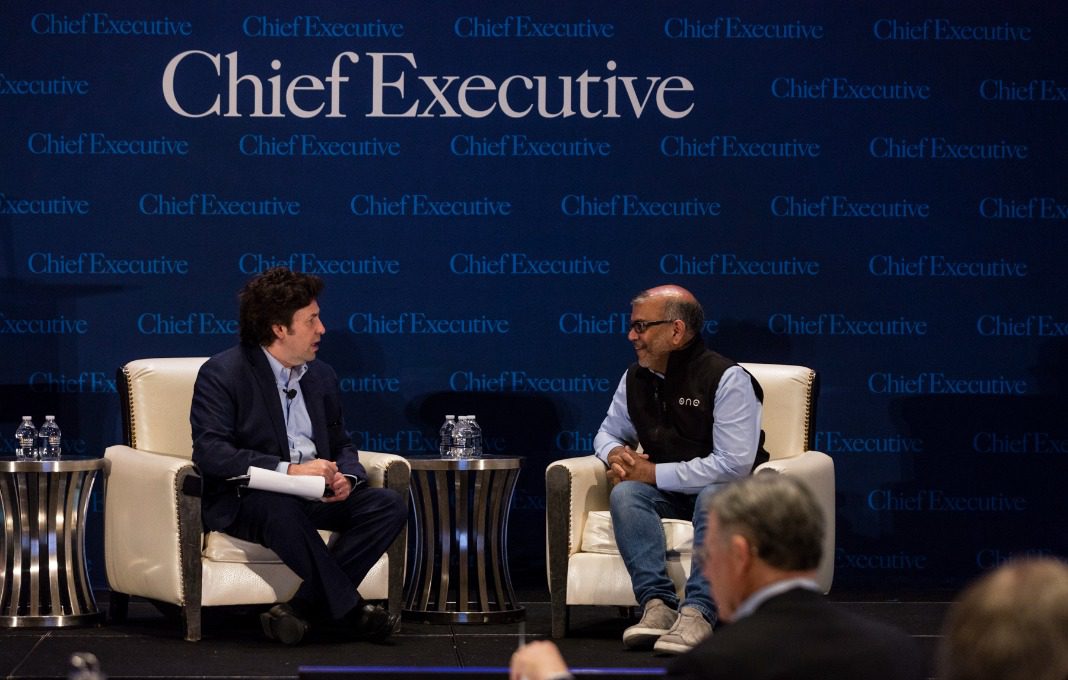EV Supply Chain Keeps Sustaining Blows


Ford Motor has set off more alarm bells among its suppliers by issuing a “call to action” to them to help the automaker cut the costs of electric-vehicle production. It’s just the latest example of the immense challenges being faced by both traditional and new participants in the automotive supply chain as they struggle with the pace of an EV “revolution” that abruptly has slowed from a sprint to a slog.
Mujeeb Ijaz is one of those suppliers, as founder, vice chair and chief technology officer of Our Next Energy (ONE), a Michigan-based company that is attempting to scale production of long-range EV-battery systems but lately has been struggling with funding and with obtaining supply agreements with OEMs such as Ford.
“We need more conviction on scale and cost structure” for America to build an EV-battery supply chain that can help the nation’s electric-vehicle manufacturing base compete with the fast-growing EV industry in China, Ijaz told the Chief Executive Manufacturing Leadership Summit in Detroit earlier this month. “In China, 50 percent of car sales are EVs or plug-in hybrids. [The U.S. needs] to participate in the future energy economic order.”
Ford’s latest action could prove a serious blow to such hopes, at least in the short term. In an internal memo obtained by Crain’s Detroit Business, Ford paints a dire need for suppliers’ help in reducing the cost basis of its EV manufacturing as an important way to help the automaker push through current troubles for the transition of its product lineup and production base.
The Ford memo comes as many of its suppliers already are grappling with the implications of significantly lower demand for EVs than the industry anticipated at this point, including drastic cutbacks in output of the Ford F-150 Lightning all-electric pickup. Ford and other automakers are having to put the brakes on scaling up EV production in the wake of souring sentiment by American consumers about all-electric vehicles that has translated into slowing demand at car dealerships. Ford also is joining other automakers in leaning into more production of hybrids instead of all-electrics.
“We have all invested heavily in the success of the EV business, and we will all win or lose together,” Liz Door, Ford’s chief supply chain officer, says in the memo, according to Crain’s. “To enable affordability, it is of paramount importance that our EV portfolio achieves further levels of material cost efficiency.”
In the memo, Ford asks suppliers to develop “incremental cost-reduction proposals” for a list of both current and upcoming EVs, according to the publication. “We need your best ideas to drive cost reduction, even if they have been previously rejected by Ford,” Door says in the memo. “We also would be willing to consider ideas that may require investment but support profitability. Everything is on the table.”
In Ijaz’s view, however, “everything is on the table” is part of the problem. ONE has had to scale back commercial expectations, scramble for funding and reorganize its leadership recently in major efforts to adjust to the slowing of the EV transformation in the auto industry. As Ijaz told the Manufacturing Leadership Summit, ONE’s technology—which he said can provide an automotive battery system that provides up to 600 miles of range on a charge—is superior even to the best Chinese technology in that regard, but matching production scale with demand by U.S. automakers has been problematic.
“If a big car company invests too much money in the battery-electrification movement, and that changes quarterly earnings and changes investor sentiment,” Ijaz told summit attendees, “they’re not thinking about long-term strategy. [There’s] got to be a long-term play and they have to stay committed to it.”
The difficulty for ONE in getting battery-system contracts is a chicken-or-the-egg problem, in part, Ijaz said. “When it comes to getting contracts, [OEMs] say, ‘You’re a startup and you don’t have enough factory strength yet; how can I depend on you?’” The “missing link” in the approach taken by the Detroit Three automakers, he said, “is joint development projects. [ONE] is too small to handle the F-150 program, but a joint-development program to do something moderate and then scale is different.
“In Europe and Asia, we get a lot of attention,” Ijaz said. “We’re thinking about scaling [even in] China because we need to survive. There’s not enough support in the U.S.; we need to survive.”
The Ford memo goes on to offer little solace to such concerns. Door suggests supplier possibilities to cut costs could include “commercial, design, content, footprint and value chain” actions to “ensure efficient manufacturing operations and efficient capital spending. This includes adjusting capacity quickly downward where necessary and repurposing capital as needed, understanding spending curves and discussing all options with Ford.”


0

1:00 - 5:00 pm
Over 70% of Executives Surveyed Agree: Many Strategic Planning Efforts Lack Systematic Approach Tips for Enhancing Your Strategic Planning Process
Executives expressed frustration with their current strategic planning process. Issues include:
Steve Rutan and Denise Harrison have put together an afternoon workshop that will provide the tools you need to address these concerns. They have worked with hundreds of executives to develop a systematic approach that will enable your team to make better decisions during strategic planning. Steve and Denise will walk you through exercises for prioritizing your lists and steps that will reset and reinvigorate your process. This will be a hands-on workshop that will enable you to think about your business as you use the tools that are being presented. If you are ready for a Strategic Planning tune-up, select this workshop in your registration form. The additional fee of $695 will be added to your total.

2:00 - 5:00 pm
Female leaders face the same issues all leaders do, but they often face additional challenges too. In this peer session, we will facilitate a discussion of best practices and how to overcome common barriers to help women leaders be more effective within and outside their organizations.
Limited space available.

10:30 - 5:00 pm
General’s Retreat at Hermitage Golf Course
Sponsored by UBS
General’s Retreat, built in 1986 with architect Gary Roger Baird, has been voted the “Best Golf Course in Nashville” and is a “must play” when visiting the Nashville, Tennessee area. With the beautiful setting along the Cumberland River, golfers of all capabilities will thoroughly enjoy the golf, scenery and hospitality.
The golf outing fee includes transportation to and from the hotel, greens/cart fees, use of practice facilities, and boxed lunch. The bus will leave the hotel at 10:30 am for a noon shotgun start and return to the hotel after the cocktail reception following the completion of the round.